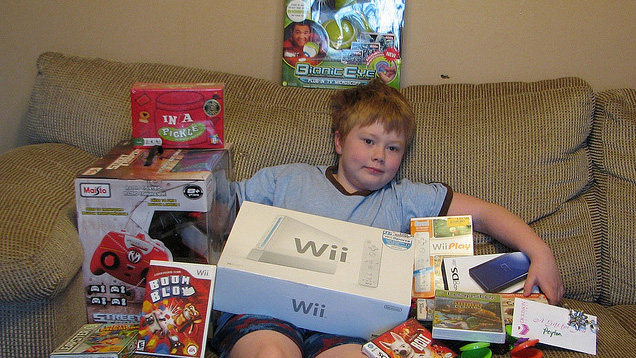Tips for keeping your child from becoming a terror
We’ve seen it with our own eyes –  unbelievably poor behavior among children. It almost seems like an epidemic of kids today acting unruly, selfish and disrespectful. Sometimes you want to intervene and tell their parent what’s what, “Do you not discipline your child AT ALL?” And that’s usually when we discover the root of the problem. Yup, the apple doesn’t fall far from the tree. It’s a sad comment on the state of society, but you don’t need to contribute to it. In fact, by raising your kid’s right, you can be part of something much greater – the solution.
unbelievably poor behavior among children. It almost seems like an epidemic of kids today acting unruly, selfish and disrespectful. Sometimes you want to intervene and tell their parent what’s what, “Do you not discipline your child AT ALL?” And that’s usually when we discover the root of the problem. Yup, the apple doesn’t fall far from the tree. It’s a sad comment on the state of society, but you don’t need to contribute to it. In fact, by raising your kid’s right, you can be part of something much greater – the solution.
Richard Weissbourd offered some tips that are intended to widen the scope beyond concentrating on the encouragement of self-esteem and happiness within your children to the additional implementation of caring for others and an understanding of responsibility. Having high self-esteem alone doesn’t make you a good person. Sometimes it accounts for the exact opposite. Hopefully you agree we need more good people in the world. Perhaps these tips will help you raise your children with the social and emotional capabilities that serve as the foundation for morality.
1. Instead of stressing to your kids that being happy is the most important thing, tell them “Being kind and responsible for others are the most important things you can do”
2. Show them the importance of appreciating others. Tell them not to treat anyone like they’re invisible; instead be respectful to everyone, from the babysitter to a teacher to a janitor.
- Encourage them to give other children credit for their achievements, and to return phone calls from friends.
- Expect your child to be responsible for his/her chores and be helpful to neighbors.
- Don’t let your child be a quitter without getting to the root of their motivation while being as constructive as possible. Whether it’s a sports team or a choir, work with and encourage them to stick with it.

3. Expect your children to appreciate you as a parent; your relationship with them will set the tone for their other relationships. Be careful not to make yourself the focus, but refuse to be ignored or taken for granted. You’re not a doormat. They should show interest in you and be able to thank you for the obvious things you do for them.
4. Support their maturity. The ability to manage negativity and work with the needs of others is at the heart of strong morality. Don’t focus on happiness and self-esteem. Let them learn to take feedback constructively and to adjust their behavior when necessary.
5. Don’t focus on feelings or passing bouts of sadness. We don’t want children to obsess over or dramatize their feelings. Help them understand and articulate their feelings and let them know that what they are feeling is perfectly normal.
6. Avoid constant adoration. Praise their genuine accomplishments and let them know how wonderful you think they are from time to time, but don’t put the pressure of constant judging on them. And don’t give them unearned praise – it could lead to inflated sense of worth and entitlement.
7. Don’t over-pressure them for achievements. It can diminish a child’s sense of self, and cause them to perceive others as threats or competitors. Make achievement an element in a larger scope. Of course, you’ll need your own feelings about achievement and status sorted out before you can truly be a positive influence.
8. Help your child recognize that there is kindness and there is cruelty in the world; justice and injustice. Listen carefully to your child and whatever moral dilemmas they uncover or face. Don’t judge them. Express your own best values and connect them with your child’s questions.
9. Don’t try to be a friend to your child. They need a parent. They need to view you as a figure of authority. You want them to idealize you and eventually want to emulate your behavior. Children appreciate others who are independent and distinct, and like to be seen as such.
10. Invite feedback from other parents of whom you like and respect. If possible make an agreement that you will let each other know if you feel that you/they are harming your child’s moral or emotional development in any way. It’s tough being a parent, but you need to rise to the responsibility and be the person you always knew you were capable of being – an ideal and strong role model!









